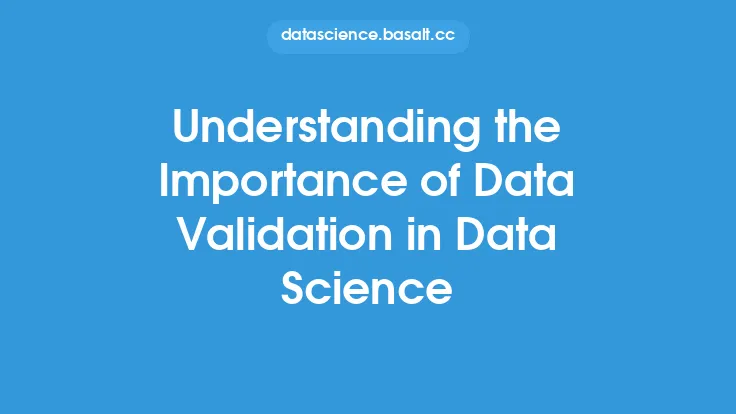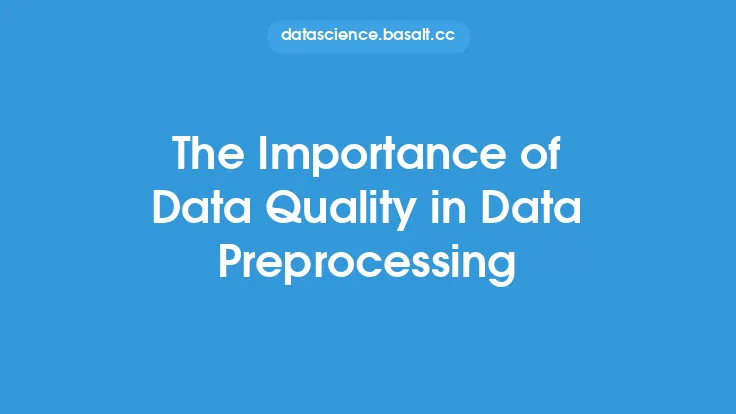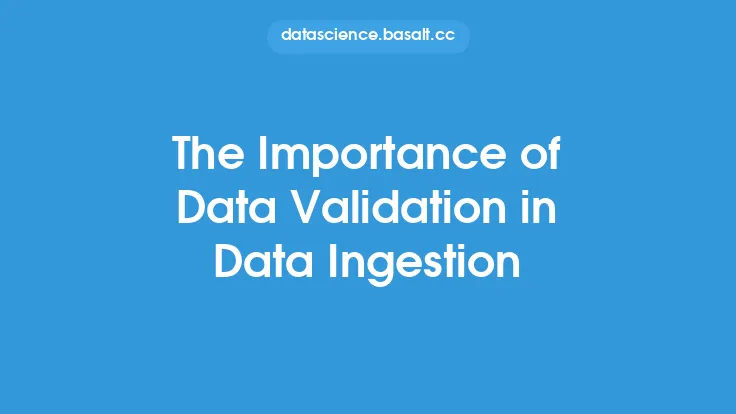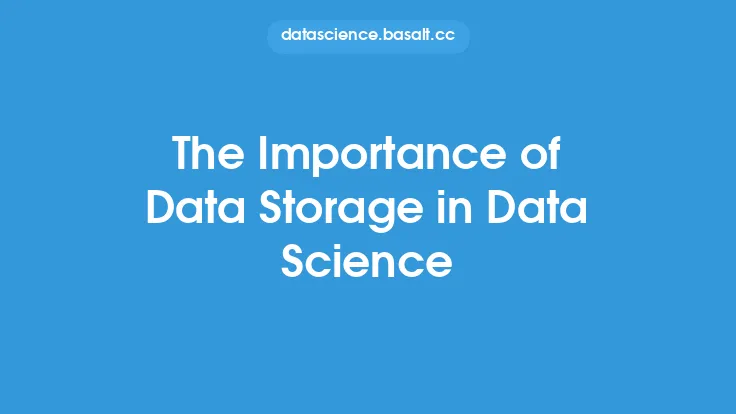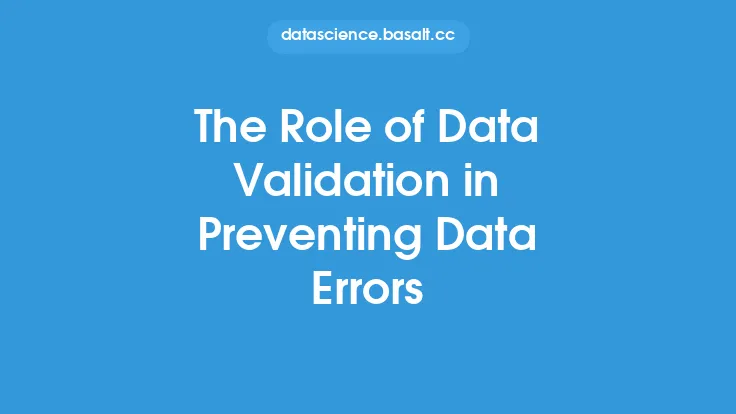Data validation is a crucial step in the data processing pipeline, ensuring that the data being processed is accurate, complete, and consistent. It involves checking the data for errors, inconsistencies, and conformity to predefined rules and formats. The importance of data validation cannot be overstated, as it has a direct impact on the quality of the output, the reliability of the insights gained, and the overall decision-making process.
What is Data Validation?
Data validation is the process of verifying the accuracy and quality of data before it is used for analysis, reporting, or other purposes. It involves checking the data against a set of predefined rules, constraints, and formats to ensure that it meets the required standards. Data validation can be performed at various stages of the data processing pipeline, including data entry, data import, data transformation, and data loading.
Types of Data Validation
There are several types of data validation, including:
- Format validation: This involves checking the data to ensure that it conforms to a specific format, such as date, time, or numeric format.
- Range validation: This involves checking the data to ensure that it falls within a specific range or set of values.
- Pattern validation: This involves checking the data to ensure that it matches a specific pattern, such as a regular expression.
- Data type validation: This involves checking the data to ensure that it is of the correct data type, such as integer, string, or date.
- Business rule validation: This involves checking the data to ensure that it conforms to specific business rules or constraints, such as checking for invalid or duplicate values.
Benefits of Data Validation
Data validation offers several benefits, including:
- Improved data quality: Data validation helps to ensure that the data is accurate, complete, and consistent, which is essential for reliable analysis and decision-making.
- Reduced errors: Data validation helps to reduce errors and inconsistencies in the data, which can lead to incorrect insights and decisions.
- Increased efficiency: Data validation can help to automate the data processing pipeline, reducing the need for manual data checking and correction.
- Enhanced security: Data validation can help to prevent data breaches and cyber attacks by detecting and preventing invalid or malicious data from entering the system.
Data Validation Techniques
There are several data validation techniques that can be used, including:
- Data profiling: This involves analyzing the data to identify patterns, trends, and anomalies.
- Data quality metrics: This involves using metrics such as data completeness, data accuracy, and data consistency to measure the quality of the data.
- Data validation rules: This involves defining rules and constraints to validate the data against.
- Data validation algorithms: This involves using algorithms such as data mining and machine learning to validate the data.
Data Validation Tools and Technologies
There are several data validation tools and technologies available, including:
- Data validation software: This includes software such as Talend, Informatica, and SAS that provide data validation capabilities.
- Data quality platforms: This includes platforms such as Trifacta, DataRobot, and Alation that provide data quality and validation capabilities.
- Data validation frameworks: This includes frameworks such as Apache Beam, Apache Spark, and Python that provide data validation capabilities.
- Data validation libraries: This includes libraries such as Pandas, NumPy, and SciPy that provide data validation capabilities.
Best Practices for Data Validation
There are several best practices for data validation, including:
- Define clear data validation rules: This involves defining clear and concise rules and constraints for validating the data.
- Use automated data validation: This involves using automated tools and technologies to validate the data.
- Validate data at multiple stages: This involves validating the data at multiple stages of the data processing pipeline.
- Use data quality metrics: This involves using metrics such as data completeness, data accuracy, and data consistency to measure the quality of the data.
- Continuously monitor and improve data validation: This involves continuously monitoring and improving the data validation process to ensure that it is effective and efficient.
Common Data Validation Challenges
There are several common data validation challenges, including:
- Data complexity: This involves dealing with complex and diverse data sets that require specialized validation techniques.
- Data volume: This involves dealing with large volumes of data that require scalable and efficient validation techniques.
- Data variety: This involves dealing with diverse data formats and sources that require flexible and adaptable validation techniques.
- Data velocity: This involves dealing with fast-moving data that requires real-time validation techniques.
- Data security: This involves dealing with sensitive and confidential data that requires secure and reliable validation techniques.
Conclusion
Data validation is a critical step in the data processing pipeline, ensuring that the data is accurate, complete, and consistent. It involves checking the data against a set of predefined rules, constraints, and formats to ensure that it meets the required standards. By using data validation techniques, tools, and technologies, and following best practices, organizations can improve the quality of their data, reduce errors, and increase efficiency. As data continues to play an increasingly important role in business decision-making, the importance of data validation will only continue to grow.
